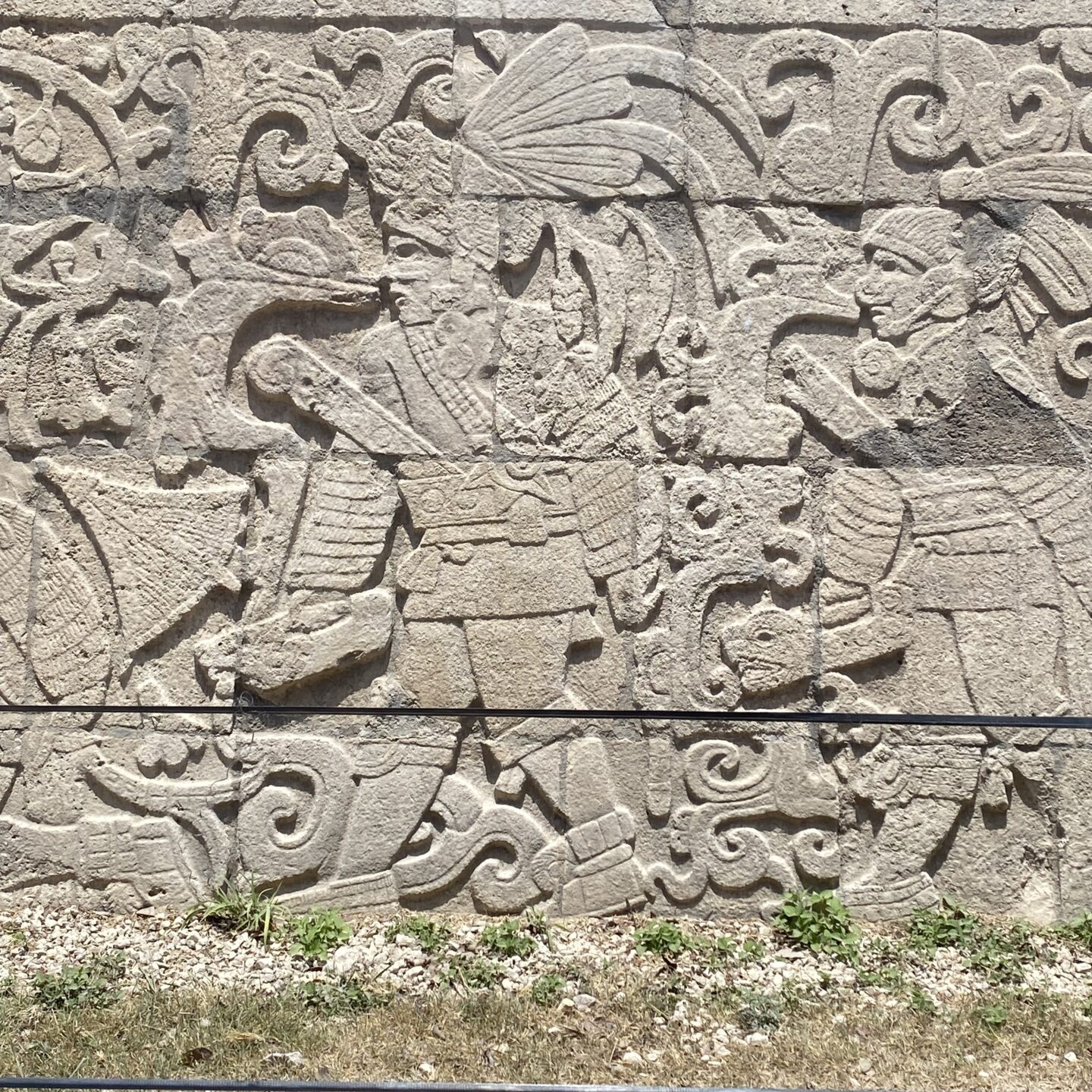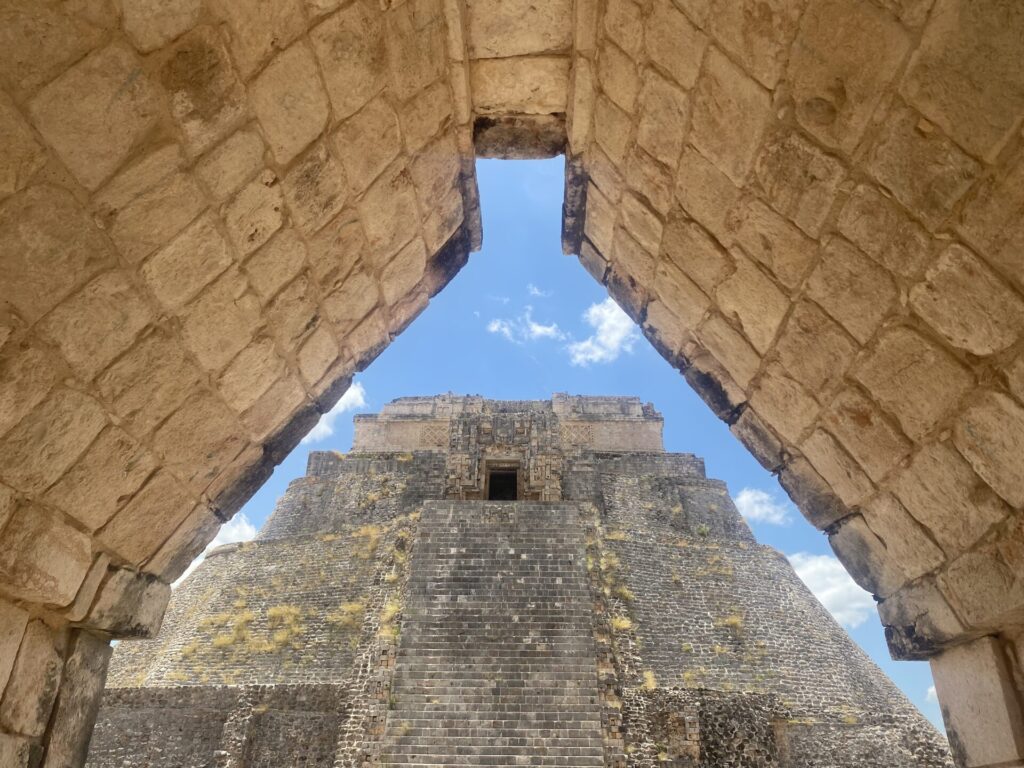I have done my fair share of traveling in my life, but until this trip I had never left the country. I am not sure what I was expecting when visiting another country for the first time, whatever it was, this trip has exceeded my expectations.

I have felt very privileged to be visiting this country in the capacity of a student. This program has focused less on assignments and paper writing, and more on listening and reflecting, in the classroom and outside the classroom. One Sunday, a couple of friends and I took a day trip to Progresso Beach. We decided to get a Didi back into Merida. The driver who picked up our ride request just so happened to be an Aztecan man, who was very informed and passionate on the subject of Mayan history. He told us about the many lies circulating about the Mayan culture, many of which we came across in our own visits to archeological sites. He told us that in oral tradition it is well known that the Mayan’s did not engage in human sacrifice. He explained that the carving of a man holding a disembodied head in Chichen Itza, often sited as evidence of “barbaric” practices of human sacrifice, are actually metaphors for truth and knowledge. He shared that the Mayan’s only worshipped one God, and all the statues coined “_____ God” or “Rain God”, are actually personifications of natural phenomenon’s. For a very long time this land and people have been claimed and marketed by outsiders, as something to be consumed by outsiders. This land, people, and culture has been treated as something to be tamed and to be put into our western box. For a historical example of this, I point to the brutal Spanish conquistador, Diego de Landa, does this by claiming that, “Those living on the coast are thus more polished in their behavior and language.” How would a Spanish conquistador know what “polished” means to the Mayan people?

This observation, of the stolen narrative of these indigenous people, has brought up questions regarding truth in my mind. Entire cultures and civilization were destroyed because another claimed that they were wrong in some capacity or another. We spent a lot of time speaking about the relevance and variability of history in our time here, and in turn, touched on the subjectivity of truth. I have always struggled with this concept. I have always wondered about the nature of truth, and been deeply puzzled by our restricted human perspective on it. The same thing may be true to one person and false to another; the same thing may be right to one person and wrong to another. The only thing binding us to that truth is a decision on our part. I have always wondered how we could ever arrive at accurate truth values with nothing but our own biased perspectives to work from. But, through this trip, I was given the opportunity to reevaluated my relationship with truth. I have repeatedly been put into situations in which I had to put aside my personal feelings on what is right, in order to listen, and I have observed horrible and tragic consequences of attaching oneself to ungrounded truth. And so I have begun to open myself more to the idea that there is no truth; to a subjective truth (scary for a Philosophy Masters Student). I have begun to aim instead for understanding.
This trip has largely taught me the importance of being wrong. That the end goal of discourse is not to be right, but to understand. At the end of the day, people are people, and we stand no chance of surviving alone. A Story about a Trickster and a Priest is a cautionary tale of what happens when one does not listen, and blames others for their misunderstandings. Take some wisdom from the trickster, Ahau: “I told him the truth- the thing is, he didn’t UNDERSTAND.” It teaches us that a lack of understanding, does not equate itself to falsity, or something being wrong. This is one of the many lessons I will carry with me from this trip.
